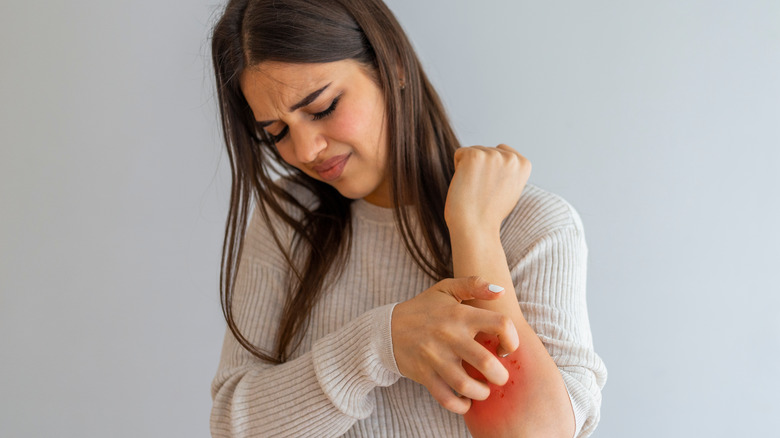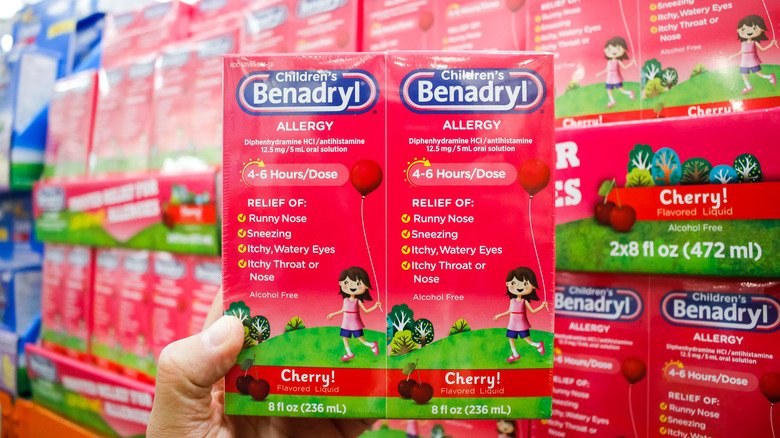What It Really Means When You Break Out In Hives
Hives are an outbreak of red, splotchy welts that appear suddenly on the skin (via Insider). Also known as uticaria, hives can be appear on any part of your body and are most often caused by an allergic reaction. This reaction can be caused by a variety of potential allergens, including insects, medications, and food.
While bugs bites usually result in mild redness, itching, swelling, or irritation, insect stings from wasps or hornets may trigger a severe allergic reaction, causing an outbreak of hives and other potentially serious symptoms. If you also experience shortness of breath or have difficulty breathing, you should seek emergency medical care. It's also not uncommon to experience hives after taking prescription medications like penicillin. If this happens, you should call your doctor immediately. Allergic reactions to food, however, tend to be more severe. For instance, foods like eggs, shellfish, peanuts, and tree nuts can trigger a serious allergic reaction, causing hives, shortness of breath, and itching and swelling of the throat, among others. If you find yourself having trouble breathing or feel your symptoms getting worse, you should seek immediate medical assistance.
How to treat hives
If you're having a severe allergic reaction, your ER doctor will most likely provide you with an injection of epinephrine — a life-saving dose of adrenaline (via Healthline). If your reaction is mild, however, you can treat your hives at home with a few simple remedies. Since common allergens are high in histamine, an organic compound that triggers an immune response, over-the-counter antihistamines can help relieve hives and other symptoms of an allergic reaction by blocking your body's histamine response. Common antihistamines include loratadine (Claritin), cetirizine (Zyrtec), and diphenhydramine (Benadryl).
Taking an oatmeal bath is another great way to help reduce hives, provided you're not allergic to oats. You can draw an oatmeal bath by filling a bath tub full of warm water and pouring in 1.5 cups of colloidal oatmeal. Soaking in this for 15 minutes can help soothe your skin and reduce itching and swelling. Aloe vera gel and calamine lotion can also be used to treat hives, since they can both help relieve swelling, irritation, and itching.


